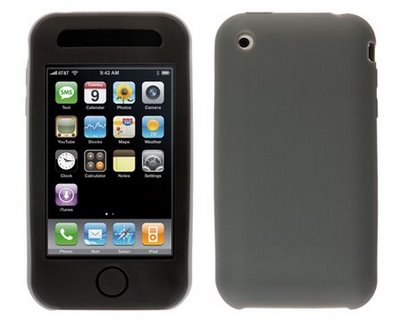
Back in March 2010, Apple filed separate suits at the U.S. International Trade Commission against Nokia and HTC, accusing both cellphone makers of infringing Apple’s smartphone patents. In April, the ITC staff recommended that the patents Apple had asserted against both Nokia and HTC should be tested in a consolidated case. Nokia and HTC supported the proposal. Apple’s lawyers at Kirkland & Ellis complained that the partial consolidation would aid Nokia and HTC by creating “complexity and delay,” but the lawyers didn’t fight hard against it because they didn’t want the case — which had the potential to knock iPhone competitors out of the U.S. market — to get bogged down.
The consolidation had clear advantages for the defendants and disadvantages for Apple. Nokia and HTC could mount a joint challenge to the validity of the Apple patents, pooling ideas and resources. Meanwhile, on the infringement side of the case, Apple’s Kirkland lawyers had a doubled workload to master the technology in phones made by both Nokia and HTC.
When the case was tried before ITC administrative law judge Carl Charneski in April and may, Nokia and HTC both had A-list defense counsel: Alston & Bird for Nokia; Keker & Van Nest and Quinn Emanuel Urquhart & Sullivan for HTC. (Quinn, remember, regularly represents Google; HTC phones run on Google’s Android platform.) the three defense firms worked together, incorporating one another’s briefs and presenting joint expert witnesses to opine on the validity of the Apple patents.
And then the fates of Nokia and HTC diverged dramatically. In June, Nokia announced that it had reached a global megadeal with Apple, with Apple agreeing to pay hundreds of millions of dollars for Nokia IP. HTC waited for Judge Charneski. his initial determination, issued Friday afternoon, found HTC to infringe two valid Apple patents. (HTC is off the hook with respect to two others.) Though the administrative law judge’s determination can be appealed to the full ITC, the preliminary ruling sent HTC’s share price off a precipice.
How did two defendants end up with such different results?
The answer to that question lies in litigation’s increasingly strategic significance for big businesses. Apple’s consolidated ITC case against HTC and Nokia was just one piece in the litigation chess game Apple is playing with every cell phone maker. Consider Apple’s smartphone litigation history with Nokia, a company which is allied with Microsoft in the great smartphone showdown. Nokia has a vast patent portfolio, including crucial 3G intellectual property. It initiated a patent war with Apple; Apple’s ITC complaint against Nokia was in retaliation for Nokia’s infringement claims against Apple. the litigation between the companies was more important in determining how big a licensing deal Apple would sign than in determining whether Apple would sign any deal at all.
HTC has far less leverage with Apple, which is why its loss in the ITC consolidated case looms so large. HTC is a young company without much IP Apple needs. It’s also closely allied with Google — Apple’s sworn smartphone enemy, thanks to Android. If Apple was unlikely to work out a licensing deal with HTC before Judge Charneski’s ruling, it’s even less likely to do so now. (Things can change, of course. HTC has said it will ask the full ITC to review Friday’s initial determination, and its own ITC infringement suit against Apple, tried right after the completion of the consolidated case, has not yet been decided.)
Apple still has major pending smartphone cases in the works with Motorola and Samsung. Both are veteran cellphone pioneers with valuable technology, a la Nokia; both also use Google’s android operating system, like HTC. Should be very interesting to see whether they end up like Nokia or HTC.
(Reporting by Alison Frankel)